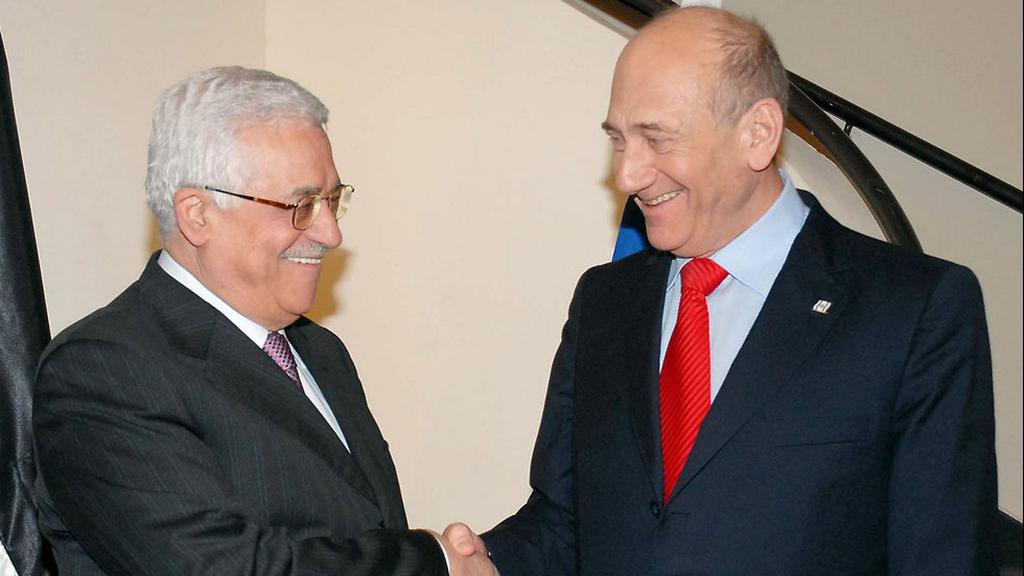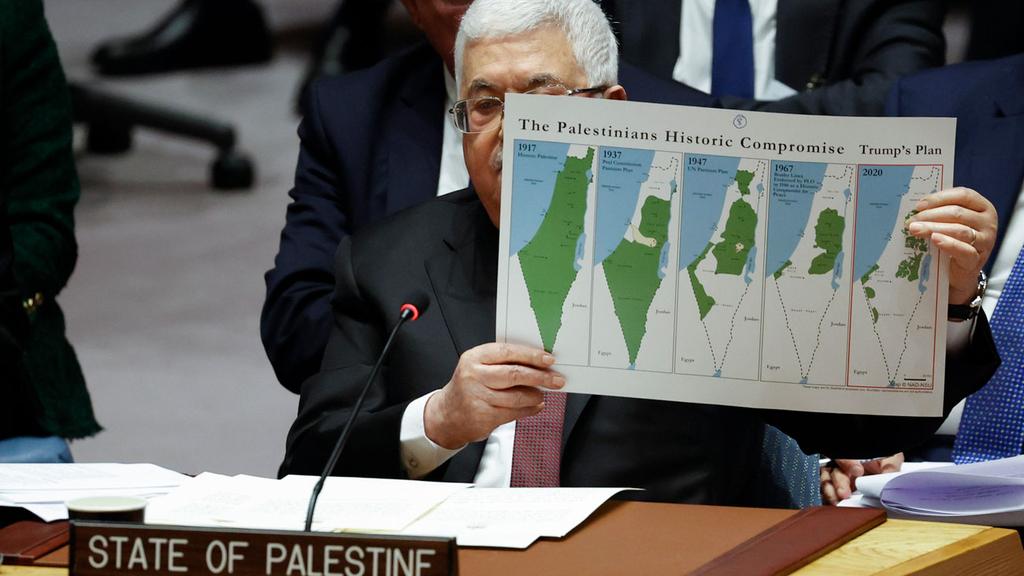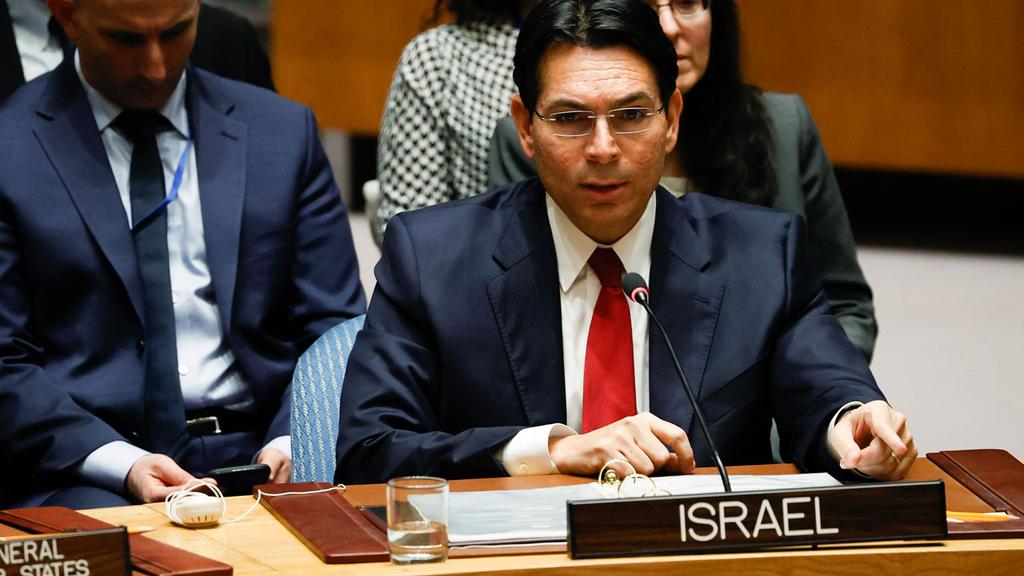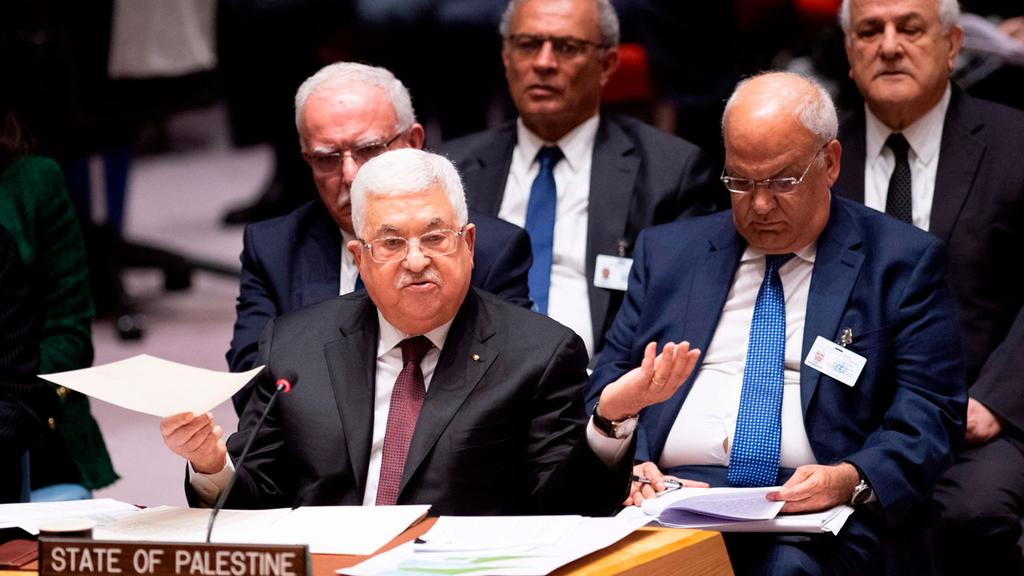Getting your Trinity Audio player ready...
UNITED NATIONS - Palestinian President Mahmoud Abbas reiterated his rejection of the Trump administration's Mideast plan, which he labeled a "gift" to Israel, in an address to the UN Security Council on Tuesday. A draft resolution opposing the U.S. proposal was pulled by the Palestinian administration at the last minute.
President Donald Trump unveiled the U.S. initiative for ending the Israeli-Palestinian conflict on Jan. 28. It envisions a disjointed Palestinian state that turns over key parts of the West Bank to Israel, siding with Israel on key contentious issues including borders and the status of Jerusalem and its settlements.
The plan set out late last month by the White House was a "deal imposed by one state," Abbas said, calling it an "Israeli-American plan."
The Palestinian president kicked off his speech on a belligerent note, claiming President Trump's peace plan "legitimizes settlements and annexation of Palestinian land," as well as bolsters "the apartheid regime."
"Peace between the Israelis and Palestinians is still possible," he said, but said that the U.S. "cannot be the sole mediator."
"We have tried but we cannot accept it again," he said.
Waving a copy of a map that the U.S. plan envisions for a two-state solution for Israel and Palestine, Abbas said the state carved out for Palestinians looks like a fragmented "Swiss cheese."
Abbas, despite the harsh criticism, brushed off the claims the peace plan - as well as the continued Israeli occupation of the West Bank - will spark another violent Palestinian uprising. "We will not resort to terrorism," he said.
He also appeared to have gone back on his claim the Palestinian Authority has ended the security ties with Israel, which me made shortly after the U.S. initiative was unveiled. "We have to remain partners," he said, adding "each in his sovereign country."
Abbas added the Palestinians are "not against Jews," and any Muslim who harbors feelings of anti-Semitism is committing "blasphemy."
UN Ambassador Danny Danon, who spoke shortly after Abbas, said the Palestinian president is not serious about negotiations with Israel, regardless of which peace initiative is on the table.
"President Abbas refused to be pragmatic. He refuses to negotiate. He is not interested in finding a realistic solution to the conflict."
The envoy said as long as Abbas stays in power there is no chance for peace talks. “Only when he steps down can Israel and the Palestinians move forward."
Danon prior to the session called the draft the Palestinian were supposed to present as an alternative to Trump's plan "an anti-U.S. resolution."
The resolution had been expected to be put to a vote on Tuesday when Abbas addressed the council. But diplomats said many of its provisions were not acceptable to European members of the council, who support a two-state solution based on pre-1967 borders, and other council members.
Earlier, senior Palestinian official Saeb Erekat denied reports that the draft resolution was pulled because of a lack of support, saying in a statement that the "rumor" the Palestinians withdrew the resolution is "not true and totally baseless."
He said the draft resolution, which initially said the U.S. plan undermined the Palestinian peoples' aspirations for independence, is still being discussed and will be put to a vote once those discussions conclude with "a formula that represents our positions."
The original draft resolution, co-sponsored by Tunisia and Indonesia and backed by the Palestinians, also said the U.S. plan violates international law and Security Council demands for a two-state solution based on borders before the 1967 Six-Day War.
It would have expressed the council's determination "to examine practical ways and means to secure the full implementation of its relevant resolutions, including enforcement measures under Chapter 7 of the [UN] Charter," which can be by military or non-military means.
4 View gallery


Then-Prime Minister Ehud Olmert meets with Palestinian President Mahmoud Abbas
(Photo: GPO/Archive)
After Abbas addressed the Security Council on Tuesday, he was to appear at a press conference with former prime minister Ehud Olmert, an opponent of the U.S. plan who was forced to resign a decade ago ahead of a corruption indictment that later sent him to prison for 16 months. Olmert and Abbas held negotiations during the former's term as prime minister.
Danon slammed Olmert for the Tuesday presser, saying he thinks "it's unfortunate ... and shameful that he will be standing with President Abbas, especially this week when we saw attacks on Israeli civilians and soldiers" and a resolution "trying to condemn the U.S., our strongest ally. And I think from a former prime minister we should expect more."
Last week, Kushner, the architect of the U.S. plan, called Olmert's expected appearance with Abbas "almost pathetic," accusing him of "trying to grab a headline when you're irrelevant."
He added: "It comes from a lot of jealousy that they couldn't get it done themselves."
First published: 17:59, 02.11.20





